In our day-to-day conversations, money always seems to sneak its way in, right? Whether it’s discussing about something that costs l’ira di dio (literally, a sum that could anger even God!), teasing someone for their braccino corto (short arm, signifying a penchant for thriftiness) or simply engaging in financial discussions, money is a language we all speak, whether we like it or not. That’s why knowing how to talk money in Italian can be beneficial for everything from traveling in Italy to gaining deeper insights into Italian culture.
In this article, we’ll take a look at the most common words for money in Italian. Make sure to stick till the end for some unique regional variations!
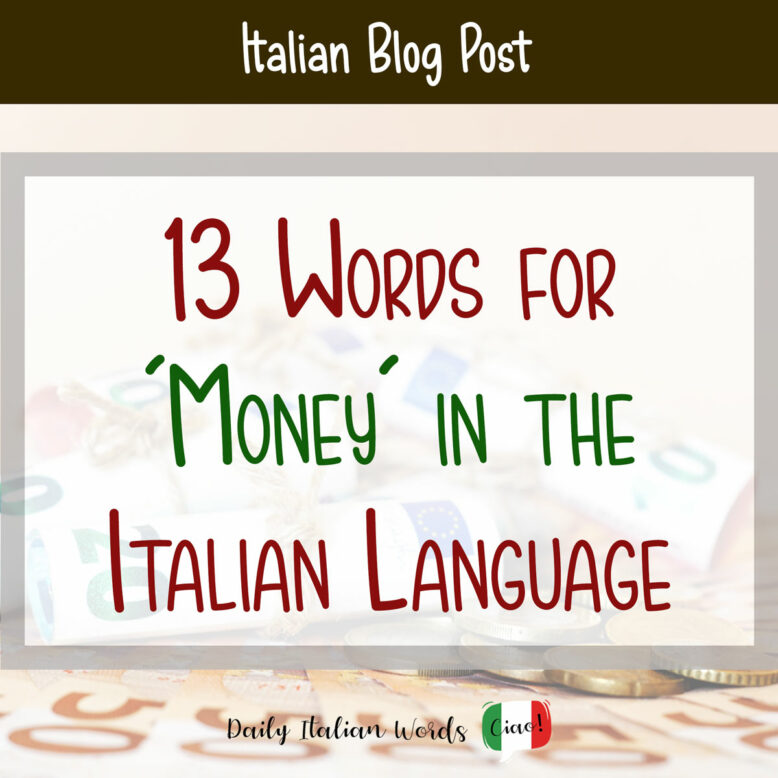
How to say “money” in Italian
The beauty of Italy and its language lies in their diversity, it’s nothing new. As such, you can expect a delightful array of Italian terms for money, ranging from standard expressions to expressive slang. From the classic soldi to the intriguing grana (yep, like the yummy cheese!), you’ll find some great words to supercharge your Italian vocabulary!
“Soldi” – the classic
Soldi is the most common Italian word for money, one that you’ll frequently hear in everyday conversations. Whether you’re discussing the cost of something (Quelle scarpe costano una barca di soldi – Those shoes cost way too much money) or someone’s wealth (Mario è pieno di soldi – Mario is loaded), soldi covers it all. It’s also used in famous proverbs like i soldi non fanno la felicità (money don’t make happiness) or soldi chiamano soldi (money attracts money).
Interestingly, while money is singular in English, soldi is plural in Italian. Its singular counterpart, soldo, traces back to the Latin solidus, the name of a late Roman Empire coin. During the Middle Ages, soldo also referred to the payment for soldiers, who earned their keep for their service. Today, you’ll encounter soldo in expressions like stare al soldo di qualcuno (basically, being on someone’s payroll) or non avere un soldo (to be broke).
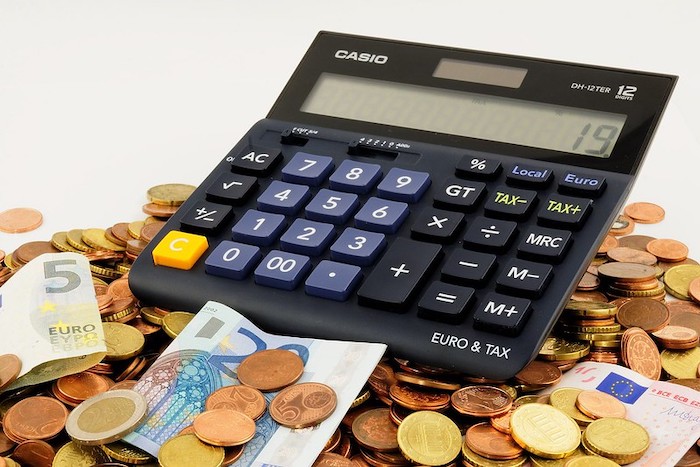
“Denaro” – the generalist
Denaro is typically used when referring to an unspecified sum of money. It carries a slightly old-fashioned tone compared to soldi. For instance, Italians commonly express their need for money with Mi servono dei soldi rather than Mi serve del denaro. However, you’ll encounter denaro in various idiomatic expressions and fixed phrases, such as denaro contante (cash), riciclare denaro sporco (dealing with dirty money), sprecare tempo e denaro (to waste time and money), and il tempo è denaro (time is money).
In everyday conversation, unlike soldi, denaro is used in its singular form as an uncountable noun. Its plural form is reserved for denoting an ancient currency. Remember the infamous 30 pieces that sealed Judas’ fate in the biblical tale? That’s an example of where denari makes its appearance, as in the sentence Giuda tradì Gesù per 30 denari (Judas betrayed Jesus for thirty pieces).
Lastly, from denaro comes the adjective danaroso, which is the Italian way of describing someone as wealthy. For example, you could say something like I Rossi sono una famiglia danarosa, il marito è proprietario di una azienda manifatturiera (The Rossis are a rich family, the husband owns a manufacturing company).
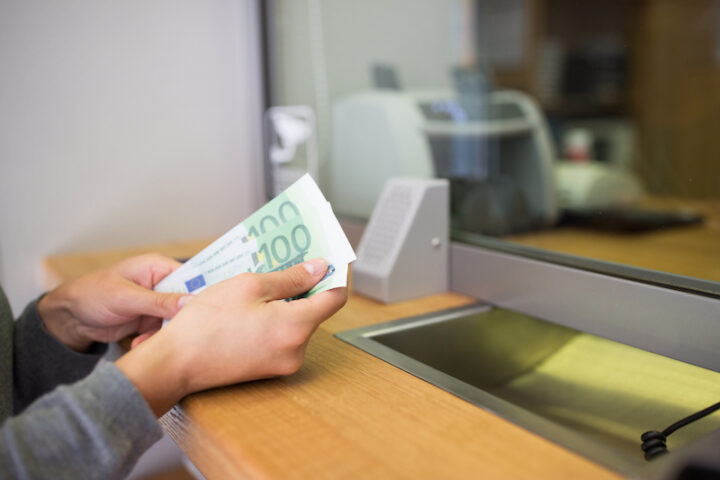
“Quattrini” – the archaic
Quattrini is another Italian word for money, but it carries a quaint charm. Its English equivalent would be penny. While it may not dominate contemporary conversations, it emerges in fixed expressions that vividly paint the nuances of someone’s financial situations, like restare senza il becco di un quattrino (to be totally broke), spendere fino all’ultimo quattrino (to splash out every last cent), or costare fior di quattrini (to cost an arm and a leg).
Another interesting expression with this word is bussare a quattrini (ask for money), an Italian idiom rooted in the popular card game tressette, where players would knock on the table saying busso a denari, signalling a plea for their partner to play their highest card!
Etymologically, the word quattrini is the diminutive of quattro (four), and it traces back to a small coin worth four denari, which was in use in Italy between the 13th to the 19th. Over time, this evolved to symbolise money in general.
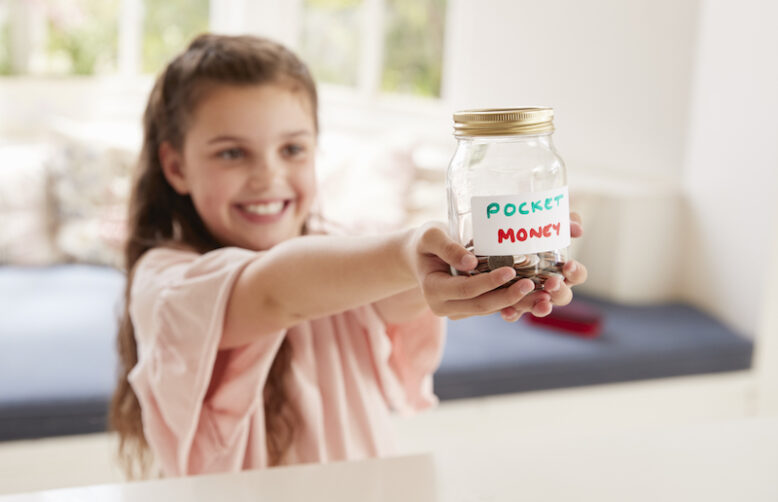
“Il grano / La grana” – the slang
Grano is an Italian slang for money, carrying a playful vibe similar to the English dough. Its roots delve into the currency minted during the Kingdom of the Two Sicilies, though some argue it simply stems from the historical importance of wheat as a trade commodity and unit of value. In colloquial use, you might hear phrases like Luigi gira sempre con del grano in tasca (Luigi always has some cash in his pocket) or Fanno il grano vendendo il raccolto al mercato locale (They earn money by selling the harvest at the local market).
The term grano comes from the Latin granum, pluralised as grana. Interestingly, grana is also colloquially used in Italian to mean actual dough. You’ll find it in fixed expressions such as avere la grana (to be rolling in dough), cacciare la grana (to shell out money), or essere pieno di grana (to have loads of money).
But remember, grana can also mean troubles or hassles. For example Ho una bella grana da gestire (I’ve got an unpleasant problem on my hands) or Suo fratello è alle prese con una serie di grane giudiziarie (His brother is dealing with a pile of legal headaches).
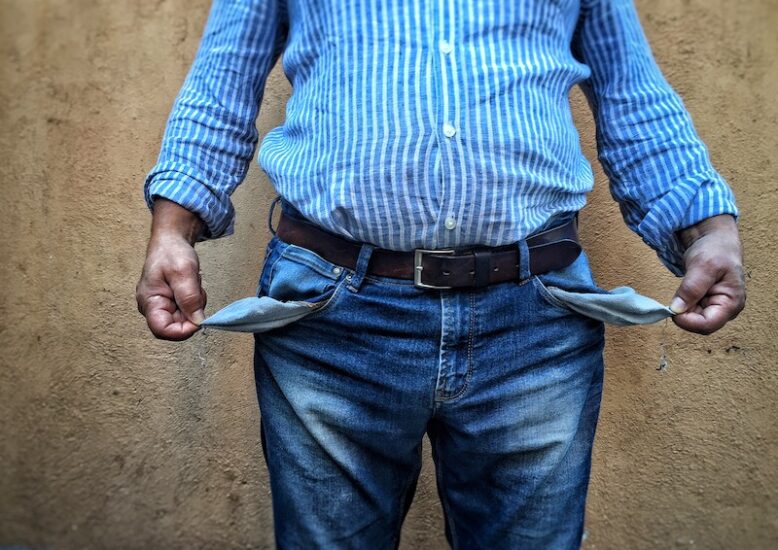
“Liquidi” – bridging everyday conversation and high finance
Among the many words for money in Italian, liquidi is used to refer to the cash in your wallet that’s ready to be spent, like cash in English. But it’s not just about the physical bills and coins; liquidi also covers the idea of liquid assets, which are those financial instruments that you can quickly turn into cash if you need to.
You might come across this word in sentences like Non ho disponibilità di liquidi in questo momento (I don’t have any cash available right now), which taps into the frustration of not having enough money at hand when you need it. Or you might hear È sempre utile avere dei liquidi con sé in caso di emergenza (It’s always useful to have some cash on you in case of an emergency), highlighting the practical side of having liquid assets ready for unexpected situations.
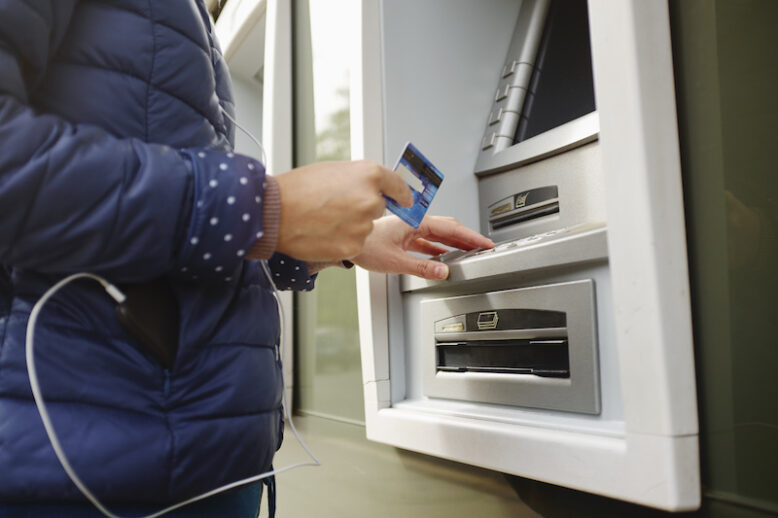
“Contanti” – the world of hard cash
Contanti is another Italian word for actual cash – coins and bills, crisp and ready for exchange. It derives from the Latin expression argentum computatum, which translates to counted silver, carrying within it the essence of wealth quantified in physical form. Over the centuries, the term has then evolved to refer to transactions conducted with physical currency.
Consider those moments when you’re eyeing that perfect gelato, but you realise your pockets lack euros – you could politely inquire, Non ho contanti, posso pagare con la carta di credito? (I don’t have cash, can I pay by credit card?). Or when you’re visiting local shops and you’re greeted by a sign that reads Solo contanti (Cash only) – yep, this is something you might easily bump into during your travels around Italy.
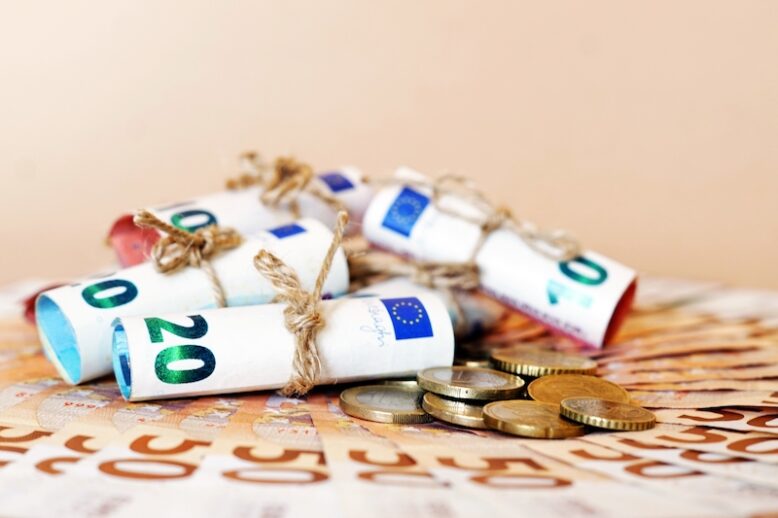
“Moneta” – the coin companion
The Italian word moneta refers to the metal coins that jingle in your pocket, as opposed to their paper counterpart, the banconote (paper bills). Say, for instance, that you’re at the cashier’s, about to settle your bill, and instead of reaching for notes, you casually remark, Aspetti, vedo se ho della moneta (Hold on, let me see if I have some spare change).
Additionally, the meaning of moneta extends into the realm of economics, serving as a broad term for currency or money in general. You might hear it in expressions like stampare moneta (to print money), la moneta digitale (the digital currency) or la moneta nazionale (the national currency).
Exploring its etymology reveals a captivating history. Moneta has its roots in the ancient Roman pantheon, where the goddess Juno, revered for her wisdom and counsel, was known as Moneta (derived from the Latin verb monere, meaning to advise, warn, or admonish). Her temple sat next to the Roman Mint, where coins were produced, and it’s plausible that the epithet of this goddess became intertwined with the coins minted there.
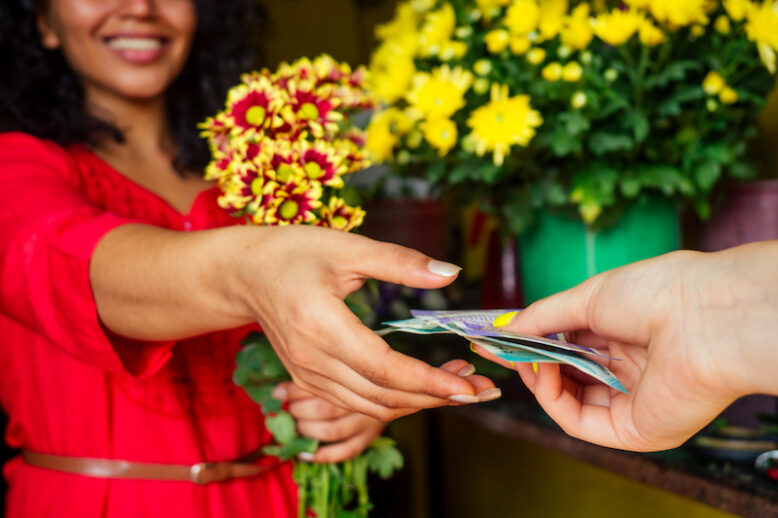
“Spiccioli” – for small quantities
Spiccioli, the Italian word for small change, is often used in its plural form with a collective meaning, rather than specifying exact quantities. However, it can also appear in singular form, for instance you could ask Hai qualche spicciolo da prestarmi? (Do you have any small change to lend me?). An informal variation popular in Rome but also found elsewhere is spicci, like Hai spicci (Do you have small change?).
Spicciolo isn’t confined solely to currency; it can also be an adjective meaning ordinary and common. For instance, a simple problem you can solve in a snap is a questione spicciola (a simple matter), and communicating in parole spicciole (simple words) means you’re keeping it simple and clear. Oh, and if you’re engaged in filosofia spicciola (cheap philosophy) you’re pondering life’s complexities in a simplistic, uncomplicated manner.
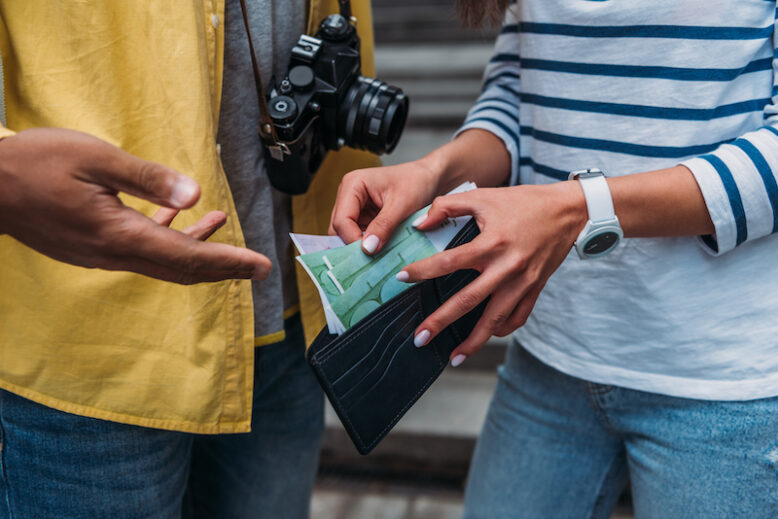
“Euro” – the continental currency
The word Euro, the unified currency of the European Union, effortlessly slips into everyday chatter to refer to money. Need a few coins for cigarettes? Just ask your friend Mi presti qualche euro per comprare le sigarette? (Can you lend me a few euros to buy cigarettes?) – a request as common as the morning sun.
It’s important to note that the plural form, Euri, is not considered correct. Therefore, you would say things like Ho vinto 10 euro al gratta e vinci (I won 10 euros on a scratch-off ticket) or Quanti euro ti è costato il tuo nuovo giocattolino? (How many euros did that shiny new toy of yours set you back?). However, it’s not uncommon, especially among young crowds, to hear it used jokingly, like when dramatising about a hefty fine, Indovinate chi ha preso una sberla di 100 euri come multa? (Guess who got slapped with a 100-euro fine?)
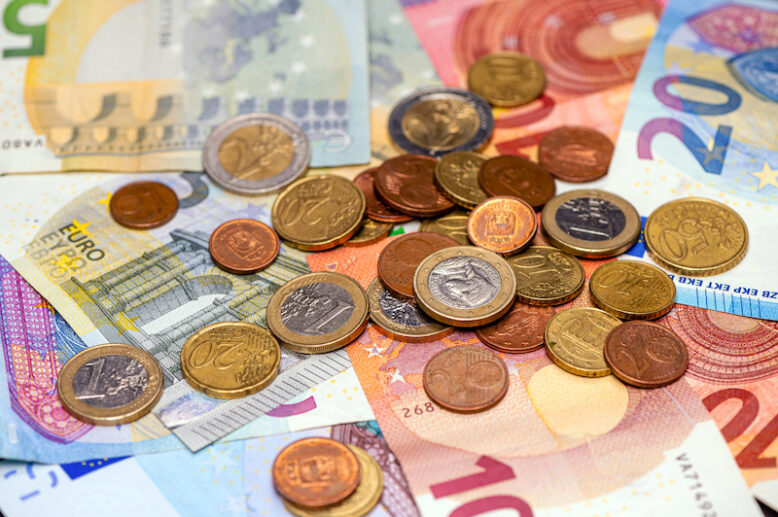
“Lira” – for nostalgics
La Lira was the currency that reigned in Italy before the Euro stole the show in 2002. And well, you know, we Italians are a sentimental bunch and we can’t help but be nostalgic about the good old days when our wallets were filled with Lira notes instead of Euros – often lamenting about how much more we could get with our money back then compared to now.
As we gather and chatter away, you’ll often catch us using expressions like non avere una lira (to not have a dime), costare due lire (to cost next to nothing), non valere una lira (to be not worth a dime), essere rimasto senza una lira (to be completely broke) and comprare con poche lire (to score a bargain).
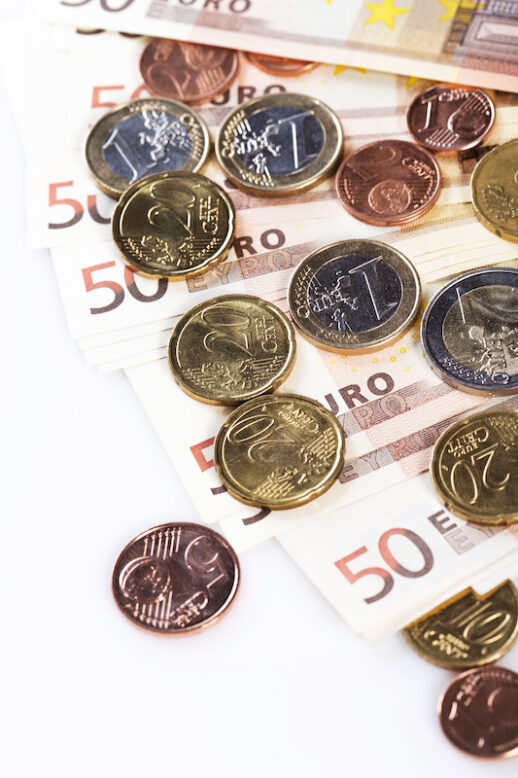
“Un deca” / “Un centone” – quirky currency slang
Ever heard someone say un deca and wondered what they were talking about? This quirky term originates from Italian youth slang and is a nod to the days of lire. Back in the pre-euro era, deca stood for ten thousand lire, but even after the currency switch, the term stuck around in expressions like Oh, c’hai un deca? – a casual query meaning “Hey, do you have ten bucks?” This slang word even found its way into a catchy tune by the Italian band 883, Con un deca, ensuring its place in Italian pop culture.
Similarly, centone refers to a crisp hundred euro note, often casually mentioned among pals during everyday chats. Imagine saying, Riparare il motorino mi è costato un centone (Fixing the scooter set me back a hundred bucks), or Mi ha allungato un centone (He handed me a hundred euro bill). It certainly injects a playful flair into informal conversations.

Some regional variants
In Italy, each region has its distinct variations of the language, and money vocabulary is no exception. Let’s see some examples.
Take a stroll through Rome, and you’ll find locals casually referring to 5 euros as scudo (making 10 euros, 2 scudi), a hundred euros as piotta, and a hefty sum of one thousand euros as a sacco (quite fittingly, a “bag” of wealth!).
In the artistic hub of Florence, they’ve embraced the term dindi, perhaps inspired by the delightful clinking of coins in your pocket as you navigate its charming streets. While down in sunny Sicily, the currency of conversation revolves around piccioli, a word that stems from the ancient copper coin picciolo, reminiscent of our modern-day 5 cent pieces.
Venturing northward, you’ll encounter all sorts of words for money, from the term danè in Lombardy to the curious palanche in Genoa, which is a nod to the corrupted form of the Spanish coin “Blanco” that once circulated there during the 1500s. Meanwhile, in the Veneto region, schei reigns supreme, evoking memories of Austrian rule when coins bore the inscription “Scheidemünze,” translating to small change.

Valentina Nicastro is a travel writer in love with her home country, Italy. Having travelled widely around the globe, she realised there was more to explore closer to home and decided to put the passport aside for a while. When she is not immersed in documenting Italy, you’ll find her donning her communication consultant hat, weaving words as a content writer and bridging linguistic divides as a translator.


